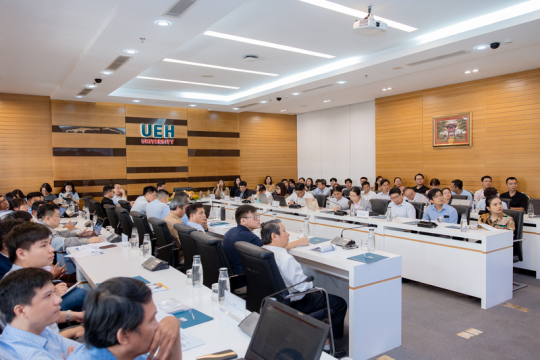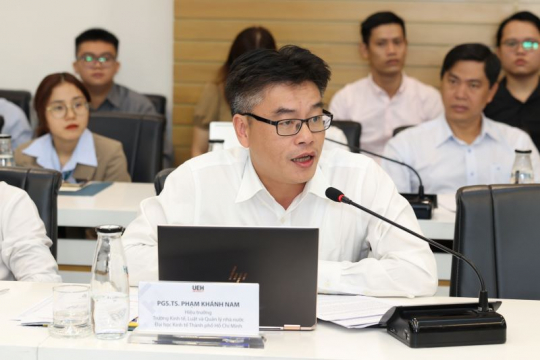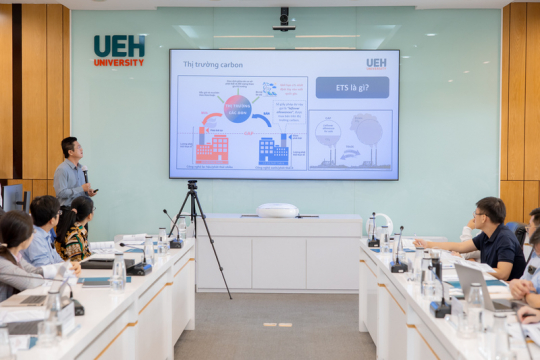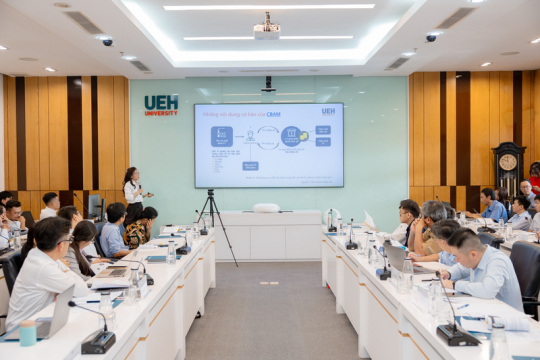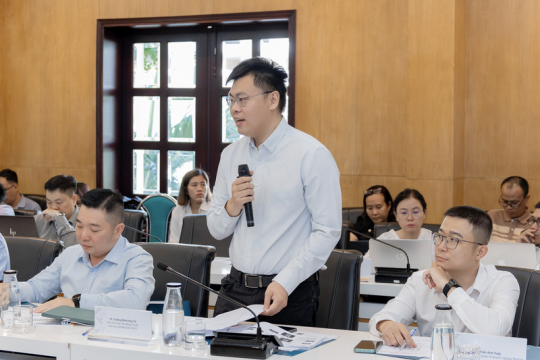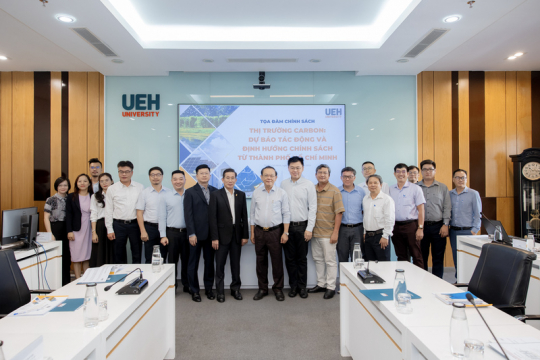EfD Vietnam recently played a key role in a dialogue on carbon markets in Ho Chi Minh City, Vietnam's largest economic hub. The team, along with local stakeholders, prepared a policy report and held a policy dialogue to explore the implications of carbon markets for the city.
The event, titled "Policy Dialogue on Carbon Market: Forecasting Impacts and Policy Orientation from Ho Chi Minh City," brought together a diverse group of participants. Academics, policymakers, and practitioners from local authorities, businesses, and international organizations in Ho Chi Minh City and Southern Vietnam participated in the discussions.
"Developing a carbon market will be a key policy tool for the Ho Chi Minh City government in its plan to reduce carbon emissions, achieve net-zero carbon by 2050, and achieve sustainable development, said Truong Minh Huy Vu, Vice Chairman of the Advisory Board for the Implementation of Resolution 98/2023/QH15 which pilots a range of specific mechanisms and policies aimed at stimulating the Ho Chi Minh City's growth, addressing challenges, and fostering innovation and sustainability.
"However, the carbon market is a new tool, very complex in theory and application, and requires a lot of systematic and highly applicable research to help state management agencies build and operate effective policies," he said.
Evaluating Market Mechanisms and International Pressures
EfD Vietnam researchers led discussions on potential carbon market implementation in Ho Chi Minh City. Experts explored both mandatory and voluntary approaches. Some presentations addressed the impacts and policy implications of a mandatory carbon market for businesses, while others focused on how a voluntary market could affect the supply and demand for carbon credits. The dialogue also covered the impact of international carbon pricing mechanisms and the potential effects and policy opportunities for the city arising from a cross-border carbon tax by the European Union. This discussion on various market mechanisms and international pressures highlights the multifaceted approach Ho Chi Minh City is considering as it navigates its path toward a carbon-neutral future.
Moving forward: Research and policy roadmap
"This event served as a valuable platform for stakeholders to exchange ideas and explore solutions together for integrating carbon markets into Ho Chi Minh City's development strategy," said EfD Vietnam Director, Pham Khanh Nam.
"The discussions will help us refine our policy report and pave the way for a comprehensive research roadmap to address challenges and opportunities."
As Vietnam strives towards its climate targets, carbon markets present a significant step towards a greener future for Ho Chi Minh City. Similar dialogues and collaborations will be crucial for a successful transition to a sustainable future.
Key findings and suggestions from the policy report
-
Developing a voluntary carbon market in Ho Chi Minh City should:
-
Establish clear regulations for funding and using capital for carbon credit issuance projects.
-
Issue project management and operation guidelines to ensure compliance with carbon pricing requirements.
-
Develop a clear policy on the use and monitoring of revenue from carbon credit sales, reinvesting in environmental protection projects.
-
Consider partnering with private organizations to leverage financial, human, and technical resources.
-
-
Addressing potential concerns of carbon credit buyers should include:
-
Collaborating with international organizations to establish a reliable system for assessing and monitoring carbon credits.
-
Implementing supportive policies to mitigate the cost burden on businesses.
-
Exploring the establishment of environmental protection funds, learning from international experiences.
-
Enhancing knowledge and awareness of the carbon market among businesses and the community.
-
-
Managing the effects of cross-border carbon tax should include:
-
Implement a carbon fee and use the revenue from this fee to financially support businesses exporting to Europe (who are affected by the EU's carbon tax.)
-
Provide financial assistance to businesses for adopting advanced low-carbon technologies.
-
Invest in public assets to reduce emissions from electricity production and become a voluntary carbon credit supplier.
-
